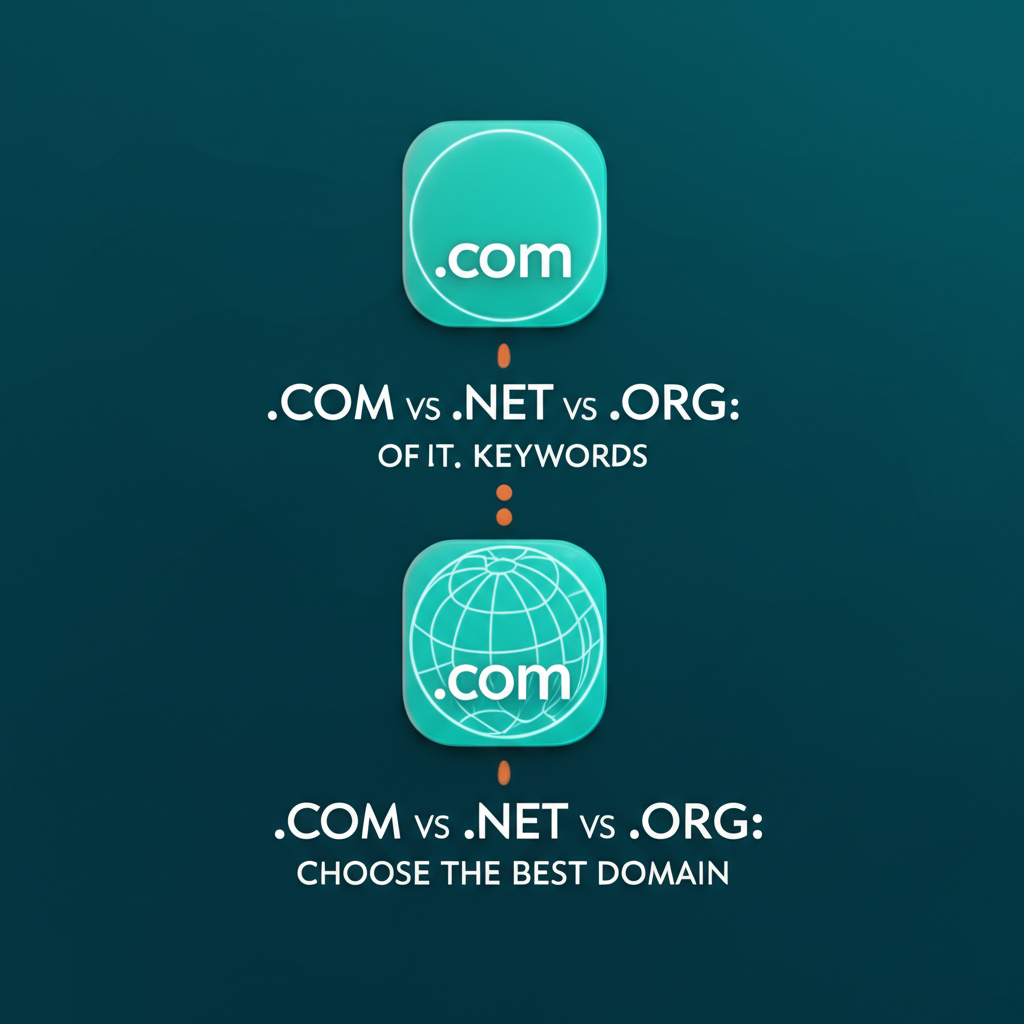- Understanding the Nuances of .Com, .Net, and . Org
- .Com – The Commercial King
- .Net – The Network Hub
- .Org – The Organization's Choice
- Making the Right Choice: .Com vs .Net vs .Org
- Beyond the Big Three: Exploring Other Options
.Com vs .Net vs .Org: Choose the Best Domain
Choosing the right domain extension is a crucial step in establishing your online presence. While hundreds of extensions exist, .com, .net, and .org remain the most popular and recognizable. Understanding the subtle differences between these three can significantly impact your website’s visibility, credibility, and overall success. This article will guide you through the distinctions of .com vs .net vs .org, helping you make the best choice for your online venture.
Understanding the Nuances of .Com, .Net, and . Org

Each of these top-level domains (TLDs) carries its own historical baggage and intended purpose, influencing how they are perceived by both search engines and users. Let’s break down each one:
.Com – The Commercial King
Originally intended for commercial entities, .com has become the most popular and widely recognized domain extension. Its ubiquity makes it the default choice for most businesses, regardless of their specific purpose. A .com domain often conveys a sense of established presence and professionalism.
Advantages of .com:
Memorability: People automatically think “.com” when recalling website addresses.
Credibility: The .com extension is associated with established businesses, inspiring trust.
SEO Impact: While the direct impact on SEO is debatable, .com’s popularity might give it a slight edge in user perception and click-through rates.
Disadvantages of .com:
Availability: Due to its popularity, finding a short, memorable .com domain name can be challenging and expensive.
Competition: Be prepared to compete with other businesses in your niche using the same extension.
.Net – The Network Hub
Initially designed for network-related organizations, .net has evolved to become a versatile alternative for businesses that couldn’t secure their preferred .com domain. It is often associated with technology companies, internet service providers, and online communities.
Advantages of .net:
Availability: .Net domains are generally more readily available than .com, offering more name choices.
Flexibility: Suitable for a wider range of online projects, especially tech-related ventures.
Disadvantages of .net:
Less memorable: Users primarily associate .com with websites, potentially leading to confusion or mistyped URLs.
Slightly less credibility: .Net doesn’t hold the same level of immediate trust as .com.
.Org – The Organization’s Choice
Traditionally reserved for non-profit organizations, .org still retains this association, although it now accommodates various websites, including blogs, online portfolios, and even some for-profit businesses. Choosing .org can signal a focus on community or social impact.
Advantages of .org:
Trust and Authority: The .org extension can convey a sense of trustworthiness, particularly for non-profits.
Availability: Finding an available .org domain is generally easier than securing a .com.
Disadvantages of .org:
Perception limitations: Primarily associated with non-profits, it might not be the best choice for commercial ventures seeking a traditional business image.
Fundraising implications: Using .org for a for-profit business might lead to confusion among potential donors or investors.
Making the Right Choice: .Com vs .Net vs .Org
The ultimate decision depends on your specific needs and goals. Consider these factors when choosing between .com, .net, and .org:
Business Type: Are you a commercial enterprise, a tech-focused company, or a non-profit organization?
Brand Identity: What image do you want to project to your audience?
Target Audience: Who are you trying to reach?
Availability: Is your preferred domain name available with the desired extension?
Long-term Vision: How do you envision your website evolving in the future?
Beyond the Big Three: Exploring Other Options
While .com, .net, and .org remain dominant, the landscape of domain extensions is expanding. Niche extensions like .io (for tech startups), .co (a shorter alternative to .com), and .shop (for e-commerce businesses) offer more targeted branding opportunities. Considering these newer extensions can be beneficial, especially if your preferred .com, .net, or .org is unavailable.
Ultimately, the best domain extension is the one that best reflects your brand, resonates with your target audience, and supports your long-term online strategy. Carefully consider the factors discussed above and choose wisely – your domain name is a crucial investment in your online success.















Leave a Reply